| ||||||||||||||||
| Turnout | 10,600 (51.88%) | |||||||||||||||
|---|---|---|---|---|---|---|---|---|---|---|---|---|---|---|---|---|
| ||||||||||||||||
| ||||||||||||||||
The Sydenham by-election 1974 was a by-election held in the Sydenham electorate during the term of the 37th New Zealand Parliament on 2 November 1974. Eight candidates stood in total.
| ||||||||||||||||
| Turnout | 10,600 (51.88%) | |||||||||||||||
|---|---|---|---|---|---|---|---|---|---|---|---|---|---|---|---|---|
| ||||||||||||||||
| ||||||||||||||||
The Sydenham by-election 1974 was a by-election held in the Sydenham electorate during the term of the 37th New Zealand Parliament on 2 November 1974. Eight candidates stood in total.
The by-election was caused by the death of incumbent MP Norman Kirk of the Labour Party, who at the time was Prime Minister, on 31 August 1974. [1] [2] Sydenham was an electorate in Christchurch and was a safe Labour seat, the party having held it since its recreation in 1946. Media stating at the time "At any general election in Sydenham the only interest is in the size of the Labour Party candidate's majority." [3] This was New Zealand's first parliamentary election with a voting age of 18 years. [4]
Bill Rowling, who had replaced Kirk as Prime Minister, was given the option by Labour of replacing Kirk in Sydenham but chose to remain in his home electorate of Tasman despite it being a more marginal electorate. He felt too much affinity for Tasman to leave and also did not want to cause a second by-election there should he be successful. [5] His declination left the field open and several candidates emerged. They included: [6]
Wybrow was initially the heavy favourite to win the nomination, so much so that he withdrew his place as a candidate on the Labour ticket for the Wellington City Council at the 1974 local elections. [7] The secretary of the Sydenham branch, Michael O'Neill, was initially a candidate as well but withdrew from the process prior to the selection meeting. [8] The selection meeting was held on 3 October and each of the 11 candidates gave a 10 minute speech before the six-person selection committee withdrew at 9:30 to consider the candidates. At 11:15 the party president Charles Bennett announced that Kirk had been selected as the candidate. [9] Initially the three Labour electorate representatives wanted Kirk while the three head office nominees wanted Wybrow. Gerald O'Brien, the party vice-president who was on the panel to choose the Labour candidate, broke the deadlock and switched his vote to Kirk, who got the nod. [5] Before his death Norman Kirk had talked to cabinet minister Warren Freer very frankly about his family, and made it quite clear that if any of his sons wished to have a political career, he hoped it would be Robert or Philip, but not John. [10]
The National Party decided not to stand a candidate. This followed on from a decision by National to refrain from political activities in the wake of Kirk's death. [11] However, a previous National candidate, Saul Goldsmith from Wellington, stood as an Independent National candidate. [12] As Goldsmith had gone directly against the decision of the party's dominion executive, party president George Chapman recommended the suspension of his membership. After discussions with the Canterbury-Westland division of the party it was felt that it was no longer necessary to suspend Goldsmith and that public announcements that he was neither an official candidate nor party endorsed had made the party's stance clear to the public. [13] Prior to the decision not to contest the seat John Burn, a Citizens' Association candidate for the North Ward of the Christchurch City Council at the upcoming local-body election, was rumoured to be a potential National candidate. He had contested the seat in 1972. [14]
The Social Credit Party chose Joe Pounsford as its candidate. Pounsford was a sub-branch secretary and executive member of the Canterbury branch of the Meat Workers' Union and had contested Sydenham for Social Credit four times previously (in 1960, 1963, 1966 and 1969) before standing in Lyttelton in 1972. During his campaign he challenged National leader Robert Muldoon to "face up or shut up" by challenging him to a public debate on industrial relations in response to anti-union remarks Muldoon had been making since becoming National leader in July. [15]
The Values Party selected Andy Lea, a 26 year old wine and spirit merchant for Quill Morris, as their candidate. Lea ran two campaigns at once as he was also a Values candidate for the North Ward of the Christchurch City Council at the upcoming local-body elections. [16]
The by-election was won by John Kirk, Norman Kirk's son. [2] This was John Kirk's entry into Parliament and he would hold the Sydenham electorate for ten years. John Kirk received 63% of the vote; Joe Poundsford of the Social Credit Party came second with 17%.
The table below contains the election results:
| Party | Candidate | Votes | % | ±% | |
|---|---|---|---|---|---|
| Labour | John Kirk | 6,664 | 62.86 | ||
| Social Credit | Joe Poundsford | 1,778 | 16.77 | ||
| Values | Andy Lea | 685 | 6.46 | ||
| Independent National | Saul Goldsmith | 684 | 6.45 | ||
| Independent | David Crawford | 321 | 3.02 | ||
| Christian Independent | Tom Fouhy | 274 | 2.58 | ||
| Socialist Action | Kay Goodger | 181 | 1.70 | ||
| Liberal | David Mitchell | 13 | 0.12 | ||
| Informal votes | 101 | 0.95 | |||
| Majority | 4,886 | 46.09 | |||
| Turnout | 10,600 | 51.88 | -37.69 | ||
| Registered electors | 20,428 | ||||
| Labour hold | Swing | ||||
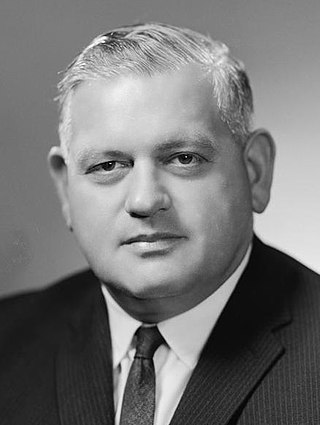
Norman Eric Kirk was a New Zealand politician who served as the 29th prime minister of New Zealand from 1972 until his sudden death in 1974.

James Patrick Anderton was a New Zealand politician who led a succession of left-wing parties after leaving the Labour Party in 1989.

The 1984 New Zealand general election was a nationwide vote to determine the composition of the 41st New Zealand Parliament. It marked the beginning of the Fourth Labour Government, with David Lange's Labour Party defeating the long-serving Prime Minister, Robert Muldoon, of the National Party. It was also the last election in which the Social Credit Party won seats as an independent entity. The election was also the only one in which the New Zealand Party, a protest party, played any substantial role.

Sir Wallace Edward Rowling, commonly known as Bill Rowling, was a New Zealand politician who was the 30th prime minister of New Zealand from 1974 to 1975. He held office as the leader of the Labour Party.

The 1975 New Zealand general election was held on 29 November to elect MPs to the 38th session of the New Zealand Parliament. It was the first general election in New Zealand where 18- to 20-year-olds and all permanent residents of New Zealand were eligible to vote, although only citizens were able to be elected.

The 1978 New Zealand general election was a nationwide vote to elect the 39th New Zealand Parliament. It saw the governing National Party, led by Robert Muldoon, retain office, but the opposition Labour Party won the largest share of the vote. Reorganisation of the enrolment system caused major problems with the electoral rolls, which left a legacy of unreliable information about voting levels in this election.
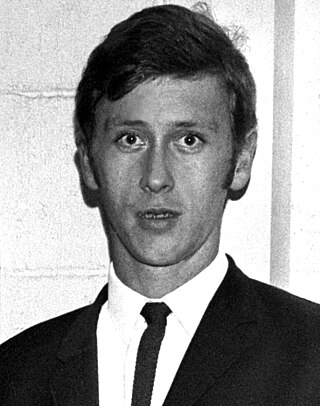
Norman John Kirk, generally called John Kirk, is a former New Zealand Member of Parliament for Sydenham, in the South Island. He is the son of Norman Kirk, who was a popular Labour Party Prime Minister.

Sir Gerard Aloysius Wall was a surgeon and a politician in New Zealand. He was Speaker of the New Zealand House of Representatives from 1985 to 1987. He was a member of the Labour Party.
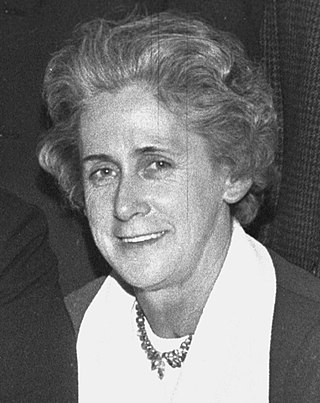
Dame Lucy Ruth Kirk was a New Zealand prominent anti-abortion campaigner. Her husband was New Zealand's 29th Prime Minister, Norman Kirk.

Thomas Malcolm McGuigan was a New Zealand politician of the Labour Party.
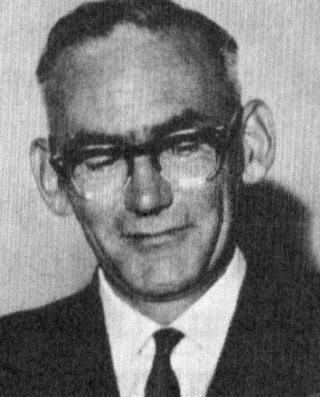
Bruce Gillespie Barclay was a New Zealand politician, being the Member of Parliament for Christchurch Central in the South Island.

Ronald Morrison Barclay was a New Zealand politician of the Labour Party.

Eric Sidney Fostyn Holland was a New Zealand politician who served as an elected member of the House of Representatives from 1967 to 1981 for the National Party and as a Cabinet Minister in the second and third National governments.

John Gerald O’Brien, known as Gerald O'Brien, was a New Zealand politician of the Labour Party.

Neville George Pickering was a New Zealand politician of the Labour Party.
Sydenham was a New Zealand parliamentary electorate, from 1881 to 1890 and again from 1946 to 1996. It had notable politicians representing it like Mabel Howard, Norman Kirk and Jim Anderton.
The Southern Māori by-election of 1967 was a by-election for the electorate of Southern Maori on 11 March 1967 during the 35th New Zealand Parliament. The by-election resulted from the death of the previous member Sir Eruera Tirikatene on 11 January 1967.

The Fendalton by-election of 1967 was a by-election for the electorate of Fendalton on 15 April 1967 during the 35th New Zealand Parliament.

Abraham Saul Goldsmith was an importer and merchant from Wellington, New Zealand. He was a foundation member of the National Party and was active at a local level. Goldsmith was also a noted chess player.
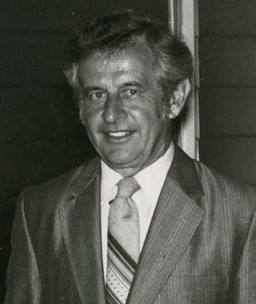
John Francis William Wybrow was a New Zealand politician and diplomat. He was the secretary of the Labour Party and later New Zealand's High Commissioner to Canada.